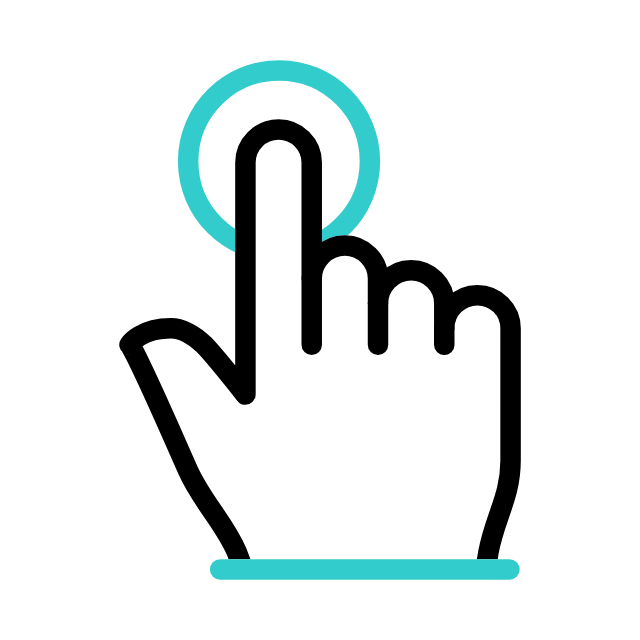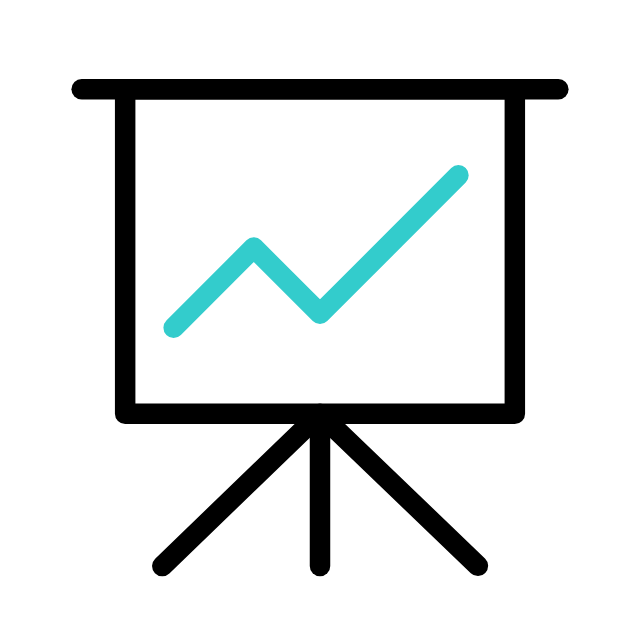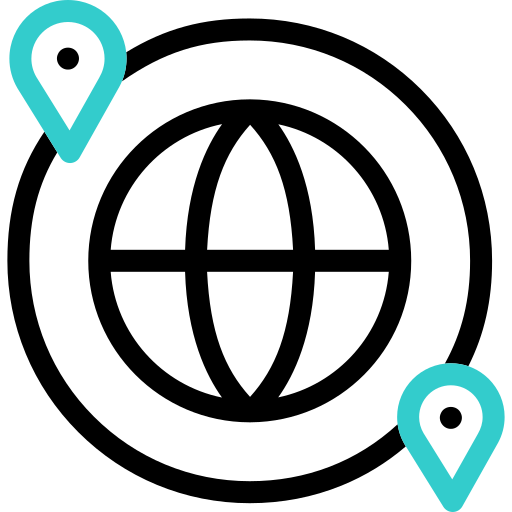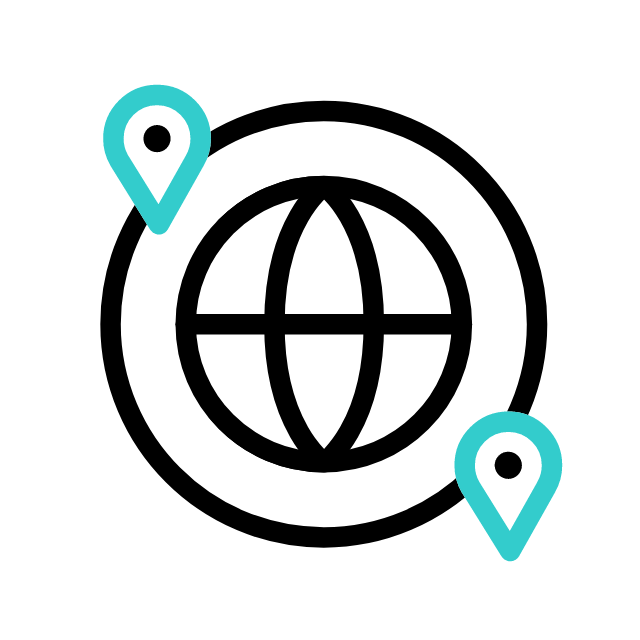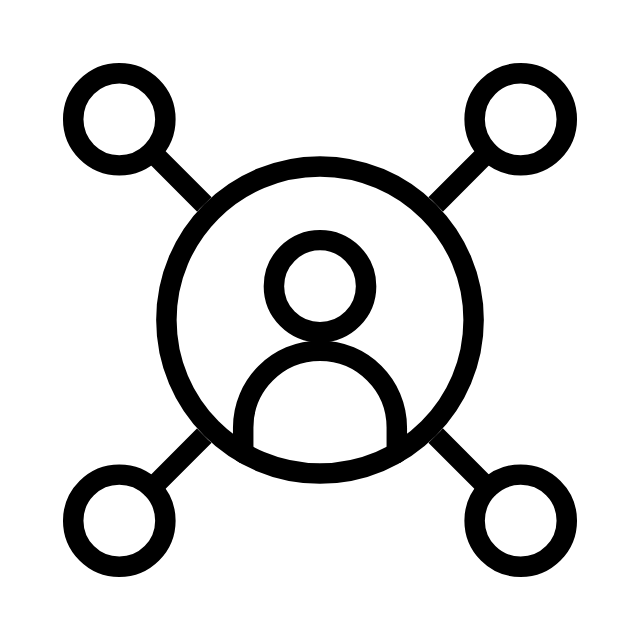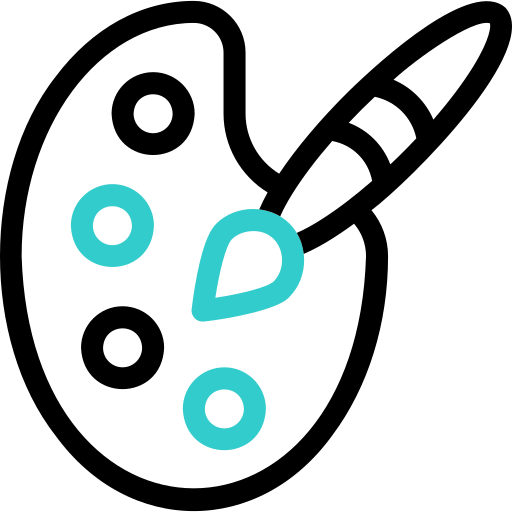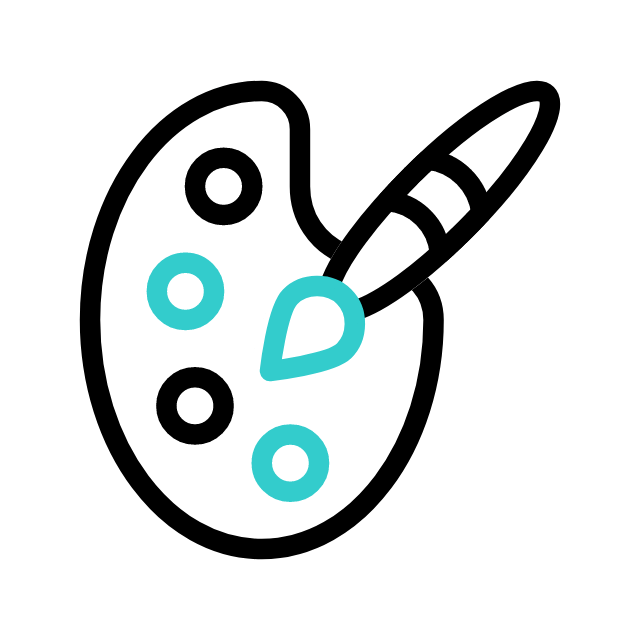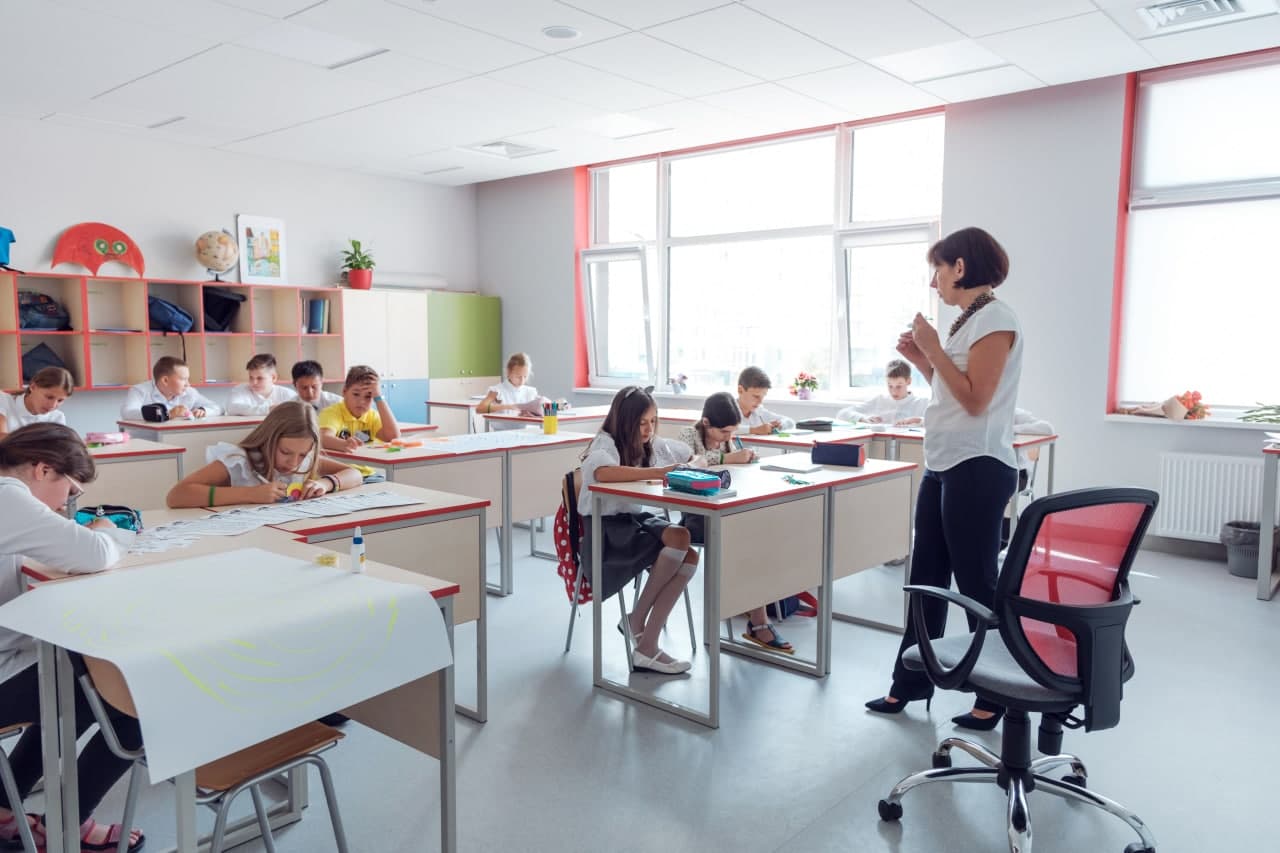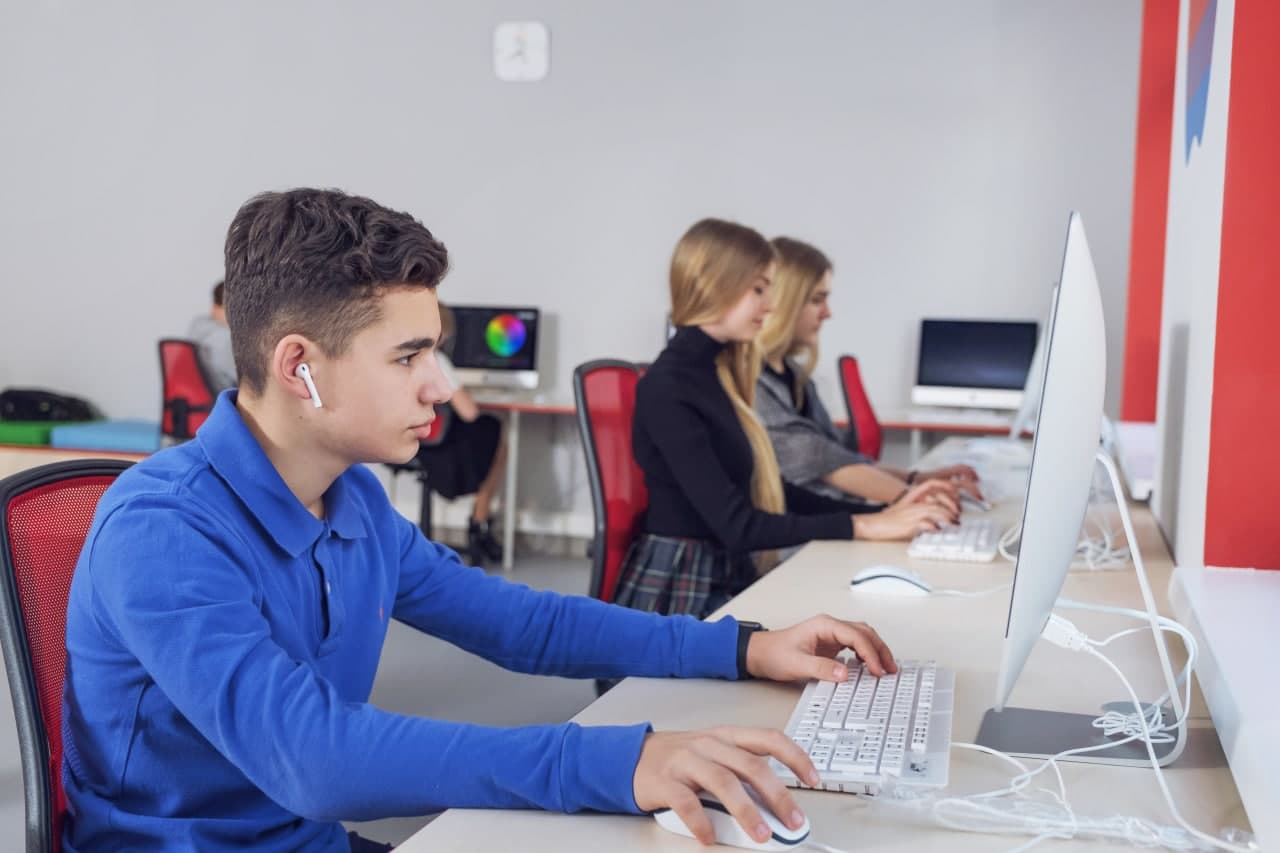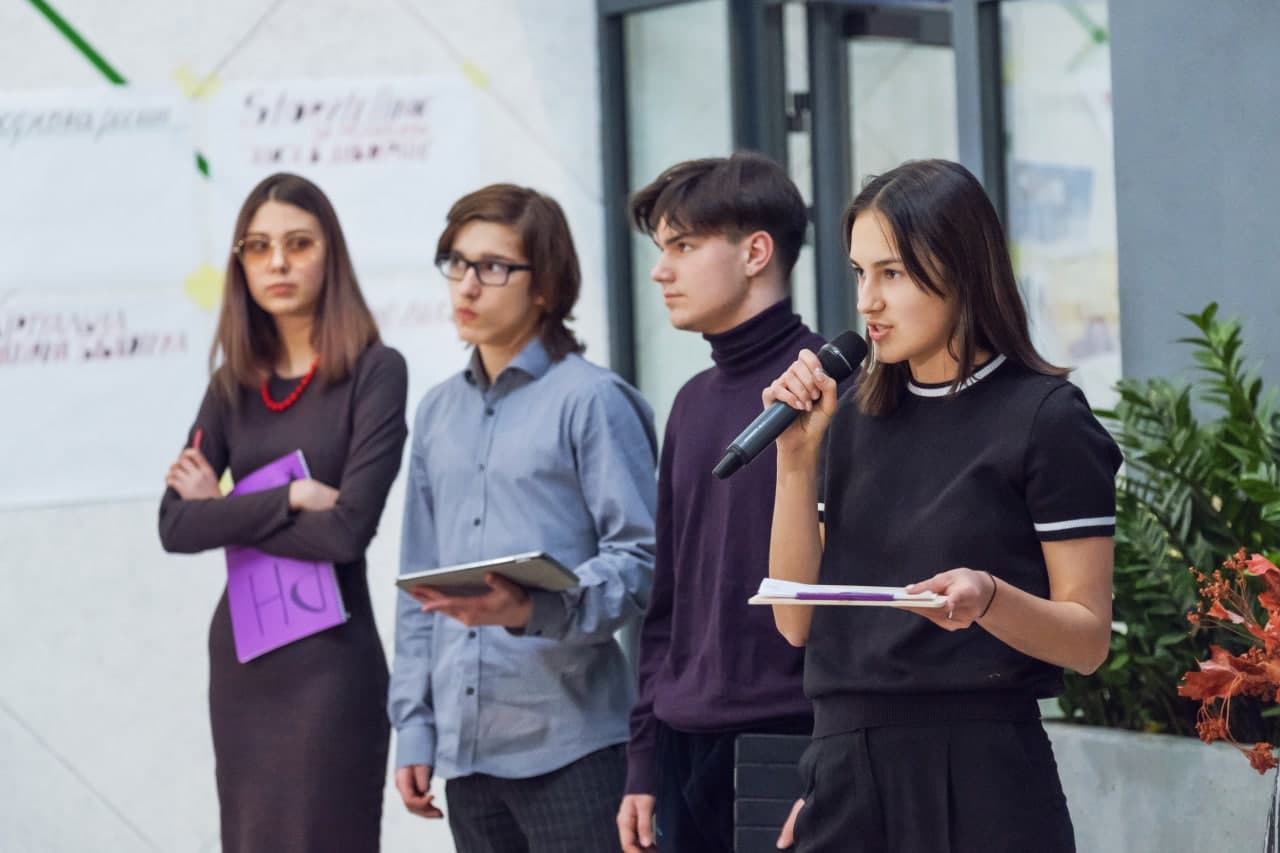About the school:
Introduction
Liko School is a private educational institution that provides complete general secondary education.
An educational space in which children have the opportunity to grow up as educated people, know how to set goals and achieve results, use their knowledge as an important resource in achieving success, become a harmonious individual who shows his individuality, creative abilities, makes decisions independently and is responsible for them.
About us:
- About us: a full-day school (8:00 - 19:00);
- Extracurricular activities are provided in the afternoon in creative studios, STEM centre and SportLiko;
- English is the second language of instruction after Ukrainian. Bilingual classes have been created in each parallel from grades 1 to 9, where teaching is implemented through CLIL (Content and Language Integrated Learning);
- From the 2nd grade, we study foreign languages of choice: German, Chinese, French, and Spanish;
- We use integrated and project-based learning (project work);
- We integrate STEM education into the educational process;
- Learning takes place in dynamic groups and project teams;
- We have technological profiles for high school students in grades 9-11: IT, medical biology and technology (architecture and design, business and entrepreneurship);
- We use modern IT technologies in the educational process (educational environment: 1 child - 1 iPad);
- We use social-emotional learning (SEL) for a healthy classroom atmosphere;
- Provide psychological and tutoring support;
- We have an additional platform for distance learning - Liko Education Online (LEO)
-
We provide an opportunity to obtain a double American diploma online (more details can be found here).
Conditions for admission to school
1. Fill out the registration form
2. Wait for an invitation to an interview
3. Pass an entrance test in English, Ukrainian, and mathematics
4. Meeting with the director
Timetable:
Liko-school is a full-day school (08:00-19:00).
08:30 - 08:45 - breakfast
08:45 - morning circle with the teacher
9:00 - 16:30 - classes
16:30 - 17:00 - individual consultations, self-training, electives
16:45 - 17:20 - dinner
17:00 - 19:00 – sports sections, creative clubs, STEM center
The concept and philosophy of our school
Liko-School has passed state licensing, and our school's educational programme guarantees the implementation of state programmes in all compulsory subjects, which we creatively expand and adapt to the needs of our students.
The philosophy of the Liko School's educational environment is based on three vital human forces: mind, heart and will to act. This idea allowed us to create a 4-dimensional educational environment in which combining knowledge, skills, and strong character will enable students to acquire meta-skills for learning and personal development throughout life.
The development of the three critical human strengths is the basis for a cross-cutting process of education that shapes the humanistic meanings and values of the entire Liko School educational system.
The main task in the education of a Liko School student is to create conditions for the realisation of their potential, national identity, development of patriotism and love for their country and their people based on universal values and virtues, among which the most important are faith, hope, love, moderation, justice, prudence, courage, responsibility, and integrity.
NVC (SEE)-learning. We are supporters of non-violent forms of communication; social-emotional and ethical learning is a cross-cutting educational strategy that, in turn, contributes to the development of emotional intelligence.
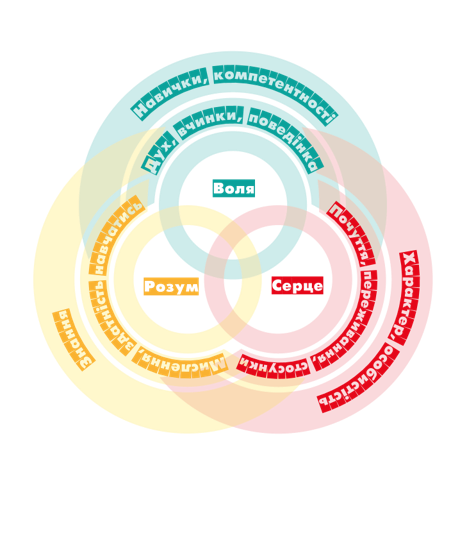
Educational trends
Primary school
The educational program of the school is based on the basic state component of the New Ukrainian School, which is strengthened by the introduction of experimental programs, author's courses and in-depth study of the English language.
Primary school is a space of research, experiments, and creativity, in which students live real life and prepare for the challenges of the future, rather than studying individual subjects.
The study of the Ukrainian language at school
The study of the Ukrainian language at school is based on the Concept of the New Ukrainian School, which aims to teach children to learn through activities that give students knowledge and the ability to apply it in life.
What does a teacher do to make their lesson both exciting and compelling? How does a teacher plan a Ukrainian language lesson so that children learn to quickly perceive, assimilate and creatively rethink a large amount of information?
To address these requests, we use eidetic and mnemonic methods that ensure high-quality learning, productive communication between the teacher and children, and going beyond stereotypes.
These methods provide an enjoyable and, most importantly, practical co-creation process with children, namely, jointly deriving definitions, writing essays, making up riddles, memorising texts and retelling them using icons and creating non-standard reference schemes for memorising rules and terms.
The advantage of applying the NUS educational concept in Ukrainian language lessons is that children, having the freedom to work on content material, become more relaxed and, at the same time, more organised for independent cognitive activity, learn to approach problem-solving in a non-standard way, not to cram, but to think, conclude on their own, and find original solutions.
Teaching the Ukrainian language includes interesting texts, games, tasks, and illustrations that promote the development of speaking, reading, and writing, and the presence of non-standard interactive tasks ensures the effectiveness of students' perception of the educational material, diversifies their learning activities, and introduce an element of curiosity.
These NUS approaches to education provide a situation of success where each student feels at ease, which contributes to their self-improvement as individuals, forming an active life position in adulthood.
Learning English
At “Liko School” of English, it's fun to learn and easy to speak!
Young learners discover an incredible journey in learning English, where every day is an adventure in a world of language experiences and a joyful community. We are creating an English-speaking environment for a happy, educated generation ready to be lifelong learners and influence the future.
Today, when English in our country has become one of the languages of international communication, it is becoming a crucial task for foreign language teachers to develop students' high level of foreign language proficiency. The students of our school study English according to the modern integrated course "Now I know", which primarily contributes to children's critical thinking development. The course includes some knowledge of science, ecology, and lifestyle in the modern world (IT, fashion, healthy eating) and contains vocabulary necessary to understand these topics.
The "Now I Know" course material and structure stimulate children to reproduce language elements and ink, express their opinions, and add their own experiences.
Bilingual education
Bilingual education allows students to feel comfortable in a multilingual world, gives them the opportunity to receive education in a foreign language without losing touch with their native language, expands their thinking, and teaches them the art of analysis.
Bilingual education today - more opportunities tomorrow!
English in a bilingual classroom is a communication tool during the school day for cooperation, communication and a comfortable stay in a multicultural space.
The educational program of bilingual education in primary school includes an essential state component (Ukrainian language, mathematics, "I Explore the World", physical education) and an English-language component (English, mathematics according to the Singapore method, science course "Science" and Art).
The lessons are based on modern methodological kits filled with vivid stories, exciting videos, authentic speech of native English speakers, and engaging interactive activities. An effective tool for bilingual learning is the European Language Portfolio, whose pedagogical philosophy emphasises the role of self-esteem in language learning. By the end of grade 4, students reach the A2 level, corresponding to the Common European Framework of Reference for Languages.
Mathematical education
Mathematics in primary school can be simple and exciting, with students learning it using the Singapore method or the Rostock pedagogical technology.
The educational curricula are developmental and focused on forming self-organization, self-learning and self-development of primary school students based on integration and an activity-based approach to teaching and learning.
"The real Singaporean math pedagogy is based on the idea that we choose fewer topics but teach deeper at each level, and this leads to better understanding and deeper memorization."
Singapore math teaches students mathematical concepts in a three-step learning process:
Concrete - pictorial - abstract.
This learning process was based on the work of American psychologist Jerome Bruner.

A modern lesson, according to the Singapore methodology, is
- a lesson where an individual approach to each student is carried out;
- a lesson in which different types of activities take place;
- a lesson where every student feels comfortable;
- a lesson in which activities stimulate the development of student's cognitive activity;
- a lesson that develops students' critical thinking and oral communication.
The Singaporean methodology ensures that every student in the class learns the material. The lesson resembles an exciting game during which students learn to think, answer questions, supplement the answers of others, and exchange ideas on their own.
"Rostock is a comprehensive program and technology for child development in Ukraine. Since 2014, we have been implementing the same technology for children's development, which aims to form the ability for self-development and self-realization of the individual. Our school uses Rostock technology in mathematics.
The Rostock program includes a variety of tasks that are not just an order of magnitude more complicated than the regular program but also more original, more creative, with a logical load and built to interest the child, to make them want to complete the exercise to the end. The child's interest = learning effectiveness, when the desire to develop further and learn new things awakens.
The advantage of the Rostock educational technology is that the child learns to think outside the box and move away from stereotypes. Students develop the necessary algorithms for solving mathematical problems, which are then extrapolated to solve any other problems and issues that require non-standard approaches, and the decision-making skills and ability to solve complex problems are transferred to everyday life. Possessing powerful logical thinking in their adult life, our students begin to calculate any life situation using the acquired skills of the Rostock educational technology.
The primary school has been working with the educational technology "Rostock" for about ten years, has results and recommends this program!
Link to the curriculum:
Health education
How do you unload, not load, children in physical education classes? How do we talk about the benefits of physical activity and sports in the modern world of gadgets? How do you motivate a child to be physically active and care for their health?
Our approach to implementing health education at school is less theory, more sports and outdoor games, meetings with famous athletes, and physical activities of interest in physical education and choreography classes. Traditional activities in the school community include morning exercises in the schoolyard, active breaks in the gym, a specially equipped interactive playroom, school sports competitions, family activities, and sports holidays. The most powerful motivator for children is the example of teachers who actively participate in the events and demonstrate a conscious choice of a healthy lifestyle.
There are many ways to develop a child's potential, and sport is one of the best tools. Exercise positively impacts a child's health, psycho-emotional state and success in social life. We believe that sports should be accessible to all children without exception, which is why high-quality physical education classes at school are our priority.
Combined physical education lessons using elements from different sports train strength and endurance and develop children's volitional qualities. Exercises with sports equipment form the correct posture and build agility, reaction speed, and coordination of movements; sports and outdoor games focus children's attention on the need to follow the game's rules and teach them to cooperate in a team for a typical result.
In favourable weather, lessons are held outdoors.
Choreography combines music, movements, dances, games and physical exercises. The choreography lessons, held once a week in a specially equipped choreography hall, are a unique training and partner interaction system that develops children's correct posture, stimulating coordination, flexibility, and endurance. During the class, children learn to feel their own body in space, reproduce rhythmic patterns and elements of various dance compositions, and communicate in the figurative language of dance.
Choreography lessons are an exciting and active hobby that helps children to develop harmoniously physically and emotionally.
I Explore the World
"I see this world and myself in it" is the value orientation of the course "I Explore the World", which is implemented through the implementation of the innovative educational project "I am Researcher.2.0." and the integrated English-language course "Science".
The innovative educational project "I am Researcher.2.0" is aimed at developing
- mathematical competence;
- natural science competence;
- civic consciousness;
- Healthy lifestyle;
- formation of the ability to learn;
- developing emotional intelligence and soft skills, such as communication, collaboration, critical thinking, and creativity.
The educational material in the I Explore the World lessons is studied through active learning. It encourages students to explore and experiment, model, construct, and be able to present and argue their points of view.
The programme is aimed at the modern child who wants to learn new things and has the opportunity to draw on their own experience. The structure of the lessons includes work in pairs and mini-groups, lessons - excursions, cross-curricular connections and integration beyond the I Explore the World course.
The integrated English-language course "Science" is part of the natural science education in English. Children learn about the world and themselves as part of it through project-based research activities. Hypotheses, experiments, investigations, projects - all this is a fascinating journey into the world of science, during which children learn vocabulary and terminology in English and, at the same time, feel like natural scientists!
Link to the curriculum: https://ja-doslidnik.com/
The Design and Technology
In our dynamic and ever-changing world, the best person to navigate, make decisions, and work is a flexible, friendly, creative, and imaginative person who can implement new ideas and approaches and be the creator of something new.
The Design and Technology course is implemented in elementary school through LEGO lessons - technology (grades 1-2), design and technology (grades 3-4), and computer science (grades 1-4).
Nowadays, the world-famous LEGO construction set can be used as an ordinary, colourful toy. Still, it can also be part of current interactive technologies for learning through world knowledge, active interaction, and the implementation of relevant projects.
The modern LEGO material used in the LEGO technology lesson allows us to implement educational tasks in various subjects in an enjoyable, playful way, which is the main leading activity of children of this age. Through play and movement, children get to know and learn different topics better.
For our course, the main principles of interaction with students are essential:
- teach them to think with their hands;
- support the culture of curiosity;
- develop associative and visual thinking;
- to learn about the world and not be afraid to make mistakes;
- develop spatial imagination and creativity;
- open up new opportunities for creativity;
- actively interact.
The LEGO Technology course material is divided into subtopics: ArchitectTime, PixelArt, MechanicMix, and ScienceBoom.
In the Design and Technology course, children develop a holistic view of design and technology through the search and processing of information about the material and non-material world from various sources (observations of nature, the artificial world, textbooks, photographs, catalogues, manuals, museums, films, Internet resources, etc.) Children explore and compare the shapes, colours, and features of objects in natural and manufactured environments, household items, and types of technology. Lessons are held in specially equipped workshops.
Handmade products for themselves or the class create a favourable, relaxed learning atmosphere and, to some extent, a unique home comfort, "their" native space. And it's okay if these crafts are still imperfect and not of high quality. Children are just learning; therefore, they realize that it is normal for them to do something imperfectly because, over time, they will be able to do better. This awareness builds self-confidence, an adequate attitude to mistakes, and a desire to improve their design and technology activities. And this is no longer preparing a child for life but embedding them in real life, reproducing and creating industrial culture through its material components - materials, tools and devices, as well as spiritual components - creativity, charity, beauty, responsibility, dignity.
Computer science lessons in primary school are a comprehensive approach to developing ICT skills: collaboration, communication, teamwork, critical thinking, problem-solving and decision-making.
At the end of the course, our students are confident users of information technology who can critically evaluate and apply information technology, analyze and solve problems responsibly, collaboratively and effectively, and write computer programs to solve them. Students can understand and use the fundamental principles of computer science, including logic, algorithms, data representation, and networks, understand the impact of technology on society, and know how to stay safe, take advantage of opportunities, and manage risks.
Students learn to program Logo, Small Basic, Scratch, Python, Visual Basic, HTML, and Massachusetts Techno App Inventor.
To achieve these goals, the following topics are considered:
Computer
Working on the Internet
Multimedia presentations
Text editor
Spreadsheets and charts
Presentations
Databases
Online communication
Digital citizenship
Introduction to programming - Computational thinking
Introduction to robotics
Creating websites (using online applications).
Link to the curriculum: https://binarylogic.net/html/digital-kids-ua.html
Art
"Art is the expression of the deepest thoughts in the simplest way." - А. Einstein
Creativity is essential for children, as it develops self-confidence, curiosity, initiative, and imagination, stimulates attention, thinking, and memory, and forms openness to learning about the world and aesthetic taste.
In the visual and musical arts classes, children demonstrate their unique talents and express their attitudes to art.
In the visual arts classes, children master techniques of working with various materials and tools for creativity (pencils, paints, plasticine, modelling dough), learn to understand colours, shapes and lines and use them to create their works. A unique part of the lesson is the analysis of works of art when children express their feelings and thoughts about what they have seen.
Art lessons in elementary school are a time for learning about the world and oneself through art, and the space of a specially equipped art studio encourages, inspires and motivates children to create, fantasize and realize their wildest ideas.
Music lessons are an important part of art education for younger students. Listening to and performing music develops children's creative imagination, develops musical skills and complements cognition of the world.
The use of various Internet resources in the classroom helps answer questions about different genres of music, musical instruments, composers, and their works; it also provides online pages with sheet music and audio and video materials demonstrating different musical techniques and styles. This allows students to see and hear different pieces of music being performed and learn how to analyze and reproduce them.
The latest technology provides ideas for creating melodies, harmonies, and rhythmic structures.
Music lessons include the active participation of students, musical experiments, and their creative implementation.
Technological Lyceum
Middle and high school students of Liko School study under the Technological Lyceum educational programme.
The educational environment of the Technological Lyceum of Liko School concentrates on advanced pedagogical approaches that combine technology and humanistic values and virtues. We successfully implement active integrated (competency-based) learning and bilingual education and promote the discovery and development of the potential of each student and teacher.
We reveal the trends:
COMPETENCE-BASED LEARNING
Schools today prepare children for life, teach them to think critically, analyse, process the amount of information they receive from everywhere, choose the necessary information, and establish cause-and-effect relationships.
The old paradigm of education, in which schools existed to accumulate knowledge and information, no longer works. Our life is now a constant learning process, so our school teaches children to acquire new knowledge, find the necessary information and apply it.
Competence-based learning is about a dynamic combination of knowledge, skills and values. A comprehensive combination of these three components ensures the quality of modern education.
Basic principles of competency-based learning
1. Activity-based approach: Knowledge is acquired through the child's experience using and applying scientific information to investigate a problematic issue or solve a complicated situation. The teacher changes their role in this situation and does not provide ready-made answers and solutions. Essential components of such learning are the cooperation of students with each other and with the teacher, dialogue and the use of formative assessment by the teacher.
2. Active participation of students: Involvement in learning activities, active work on mastering theoretical knowledge and practical experience, personal responsibility for the result and learning achievements. Developing practical skills helps students succeed in various spheres of life: communication and cooperation, problem-solving and responsible decision-making.
3. Project activities: Using project-based learning methods, where students work on specific tasks or projects, allows them to solve real-world problems and apply their knowledge in practice.
4. Individualisation: Each student develops individually, and competency-based learning considers this aspect. Teachers unlock the potential of each student by stimulating the development of their unique abilities and interests.
5. Assessment of results: Assessment in competency-based learning is not limited to knowledge scores but also considers how well students apply this knowledge in different situations.
Parents need to support their children's interest in learning, stimulate their creativity and help them solve tasks that develop specific skills. They can also work with teachers to get additional information and support in implementing a competency-based approach to their children's education.
STEM\STEAM approaches
STEM (Science, Technology, Engineering and Mathematics) / STEAM (additionally with Art (ART) at Liko School is not just about learning but rather about moving to a new level of education where science, technology, engineering, mathematics and art come together to create
STEM/STEAM approaches create opportunities for deep knowledge, critical thinking, creativity and collaboration - qualities that will be key to a successful future in a world where innovation and flexibility play a crucial role. At Liko School, STEM/STEAM is a teaching method and a path to development and improvement that helps us unlock our potential and become an actual creator of our future.
Areas of work of the school STEM centre in extracurricular activities:
1. Minecraft Education
2. Robotics
3. 3D modelling and printing
4. Graphic design
5. Programming and website development
6. Video shooting and editing
7. Artificial intelligence
Project-based learning
One of the areas of STEM education at Liko School is the project-based learning of students. Implementing educational projects in several subjects (biology-chemistry, physics-art) directs students to conduct independent research and experiments and obtain results under the guidance of a mentor teacher.
The bright project "Secrets of the Human Body" allowed us to study the psychological state of a person under the influence of various emotions and develop a test to study emotions, analyse the effects of harmful substances on the heart, create a model of human blood circulation, and experiments to determine the chemical composition of food formed consumer literacy, influenced the understanding of healthy eating and responsibility for one's health from the point of view of chemical and biological knowledge.
Specialised training
The modern world, where globalisation has become the norm, requires the development of international perspectives and intercultural competence. Bilingual education is a unique opportunity for students to receive an education combining a rich arsenal of Ukrainian subjects and disciplines from international programmes taught in English.
While maintaining the basic educational standards in Ukrainian language and literature, history of Ukraine, mathematics and other compulsory subjects, we have expanded our English language programmes and introduced English-language courses in Science, Maths, English Language Arts, and Social Studies.
The bilingual educational model at Liko School is used for students in grades 1-9. We engage expatriate teachers from the UK to teach English-language subjects.
Bilingual (bilingual) education is not only about learning a native and foreign language but also about opening up new opportunities and ways of development for the younger generation. Among the benefits that students of bilingual programmes receive are the following:
- Students have the opportunity to study different subjects in their native and foreign languages, which significantly enriches their horizons, allows them to learn new concepts and terms, and stimulates analytical and critical thinking, which is helpful in all aspects of their studies and life
- Communication in different languages develops emotional intelligence, improving the perception of other cultures and deepening interpersonal relationships;
- It is an excellent preparation for higher education in other countries and international careers. Fluency in English provides a sustainable competitive advantage in the labour market of the globalised world.
LEADERSHIP
For the development of leadership skills, there is a self-governance center where students can show their independence and initiative, which in turn is rewarded with school currency - likcoins. The self-governance of our school is based on democratic principles and is based on a horizontal management model.
Students of the "Interaction Agency" implement social and volunteer projects, "Creators' Agency" organizes events, "School Development Agency" organizes recreation areas for students and takes care of leisure; "Agency of social media" is working on a school newspaper.
And in order for students to learn the skills of the 21st century and be ready for a successful life in the modern world, the Liko School became a participant in the pilot project and implemented the "Leader in Me" program, which is an adaptation of the famous program of Stephen Covey "Seven Habits of Highly Effective People". During the year of working with this program, our students were convinced by their own experience that every child is capable of changing the world, becoming a leader and inspiring others. This belief does not appear overnight. Leadership requires persistence. And we are confidently moving in this direction.
Bilingual education
Bilingual education is a unique opportunity for students to receive an education combining a rich arsenal of Ukrainian subjects and disciplines from international programmes taught in English. While maintaining the basic educational standards in Ukrainian language and literature, history of Ukraine, mathematics and other compulsory subjects, we have expanded our English language programmes and introduced English-language courses in Science, Maths, English Language Arts, and Social Studies.
he bilingual educational model at Liko School is used for students in grades 1-9. We engage expatriate teachers from the UK to teach English-language subjects.
Bilingual (bilingual) education is not only about learning a native and foreign language but also about opening up new opportunities and ways of development for the younger generation. Among the benefits that students of bilingual programmes receive are the following:
- Students have the opportunity to study different subjects in their native and foreign languages, which significantly enriches their horizons, allows them to learn new concepts and terms, and stimulates analytical and critical thinking, which is helpful in all aspects of their studies and life
- Communication in different languages develops emotional intelligence, improving the perception of other cultures and deepening interpersonal relationships;
- It is an excellent preparation for higher education in other countries and international careers. Fluency in English provides a sustainable competitive advantage in the labour market of the globalised world.
Formative assessment
Formative assessment is a source of inspiration for student development in a modern school.
In modern education, formative assessment plays an essential role in developing students and creating a favourable environment for their learning. This approach to evaluation is not limited to simply assigning grades - it is aimed at the continuous development and improvement of the educational process.

ormative assessment is not only a tool for assessing knowledge but also a way to develop a personality and prepare for the challenges of the modern world.
_______________________________________
Formative assessment is a systematic approach to determining students' skills, knowledge, and abilities during the school period, which provides regular information about the student's progress and understanding of the educational material for further correction and determination of effective teaching methods. An important feature is emphasising the learning process, not just the result.
Critical aspects of formative assessment:
1. Continuous monitoring:
Continuously monitor students' learning outcomes, identify strengths and weaknesses, and adapt the learning process accordingly.
2. Learner involvement:
Learners become active participants in their assessment, using clear criteria and benchmarks. This allows them to define their goals and set tasks, encouraging autonomy and responsibility.
3. Developmental orientation:
Assessment becomes a tool to stimulate development, not just to record mistakes. Teachers provide constructive feedback, teach healthy self-and peer assessment, and help identify areas for further improvement.
Advantages of formative assessment:
1. Expansion of knowledge:
Students are actively involved in the learning process, contributing to deeper learning and developing critical thinking.
2. Stimulation of self-development:
Formative assessment fosters students' desire to improve and reach new heights in their educational journey.
3. Preparation for real life:
Developing self-management and communication skills helps students prepare for the challenges of modern society.
Formative assessment creates a student who is knowledgeable and able to apply their knowledge in different areas of life and ready to learn throughout life!
SOCIAL AND EMOTIONAL LEARNING
Socio-emotional learning at Liko School is a cross-cutting educational approach that allows students and adults accompanying them to move towards well-being.
Developing socio-emotional skills (soft or flexible) is a priority for us because they form the core of the educational programme and guarantee academic success. Lessons and subjects are just ways to develop the heart and mind of a person.
That is why the Liko School's educational programme includes mandatory SEN lessons and communication hours, and we effectively use interactive interaction between students in class and teamwork in projects, group discussions and meetings at daily Morning Circles. In these classes, we learn how to distinguish our emotions, deal with them, and empathise with others. We build skills for developing harmonious relationships and making mature social decisions. Our educational environment is focused on fundamental human values and a sense of shared responsibility - the most critical leadership qualities. We concentrate our efforts on the basic skills of the 21st century, including self-direction and self-management skills, teamwork skills, communication skills, the ability to be adaptive and flexible, creative and innovative, think critically, and be ready for creativity and problem-solving.
TECHNOLOGIES IN THE EDUCATIONAL ENVIRONMENT
The modern world is constantly evolving, and with it, the requirements for the educational process are growing. Technology is the key to a high-quality and practical education that introduces students to the modern world and provides them with the tools to overcome the challenges of living in a digital society.
At Liko School, students in grades 5-11 are provided with personal iPads; classrooms are equipped with multimedia systems; we have a robust IT centre with three computer science classrooms... and a STEM centre, one of the areas of work of which are programming and robotics. In addition to using technology in a "live educational environment", Liko School has created its distance school - LEO (Liko Education Online) https://leo.org.ua/
The benefits of technology that improve our educational process:
- Active involvement of students: e-learning platforms, interactive interaction with educational content, virtual experiments, laboratory work, excursions
- Individualised learning: e-diaries and personalised assignments based on the needs and pace of learning, remote access to learning resources, individual study plans on the LEO distance learning platform
- Effective communications: prompt internal communications, timely feedback, opportunities for international partnerships and global contacts
- Development of critical thinking and media literacy;
- Preparation for future professions in the digital world, development of creativity and innovative thinking.
We consider English not as a subject of study, but as a language that allows you to learn about the world. Therefore, English is taught in our school 5 hours/week. We strive for each of the graduates of the lyceum to speak a foreign language, in particular English, and to be able to receive up-to-date and reliable information, to discuss new trends in the development of world technologies, to learn by adopting world experience.
Starting from primary school, teachers use an interactive approach to language learning. The student becomes an active participant in the process. Younger students sing, play and compete in class. We use a bilingual approach. Once a week art lessons are held in English; from the 3rd grade, our children study the Science course, attend optional classes "Mathematics in English".
In addition to lessons, students have the opportunity to further expand their knowledge of the language. For several years, there has been an English-speaking theater group at the school, this year a media group was opened, where children, with the help of the teacher, try to tell about school life in English in their own media products.
Modern changing circumstances for life and learning have prompted teachers to search for the most modern textbooks and materials. And now students of all levels are engaged in educational complexes that have online platforms. Using them allowed us to preserve the interactive component of lessons during distance learning, to provide materials and obtain student results in the most convenient and fastest way. We are indebted to our partner Dinternal (Official representative of Pearson publishing house in Ukraine) for support in providing primary literature and maintenance of book platforms.
Our students are participants in English language competitions and Olympiads, including international ones. They have experience performing at the British English Olympics. In the direction of preparation and participation in international Olympiads, DECeducation has become our reliable partner.
Student learning outcomes are easiest to assess independently. Therefore, after completing a certain stage in language learning, children take international exams (PTE YL, PET Cambridge). English teachers don't stop learning either. Have and continue to receive international certificates for teachers (TKT, CELT-P, CELT-S, CELTA).
From the next academic year, together with DECeducation, we are launching a double degree (you can find out more about it here). This is an online program for 9th grade students from the leading American university Arizona State University,
In addition to mandatory English, we also offer a second foreign language for study: German, Spanish, Chinese and French.

Student evaluation system
In the evaluation system, we use formative and summative evaluation. Formative assessment involves self-assessment, mutual assessment based on criteria assessment (development of clear criteria that allow the child to work independently, how he coped with this or that task, what he needs to work on, what he succeeds in, and what he doesn't). So the child can consciously move towards the desired result, and the teacher now gives motivating feedback and recommendations.
In addition, every semester we have three-way meetings between the teacher, parents and students, teachers provide final reports on the educational achievements of each child, use the development trajectory for the next year and give recommendations.
Homeworks
- The morning circle is a time to prepare for the school day, to form a caring, responsible class community
Self-education - time for individual self-fulfillment of tasks in subjects, consultations, cooperative learning (student - student, student - teacher)
An hour of communication is a time for forming a system of relations with each other and with the surrounding world in modern realities
The SEEN program in the lesson schedule is a time for developing soft skills: understanding and managing one's own emotions, empathizing, being able to work in a team, thinking critically and creatively
The mirror of the week is a time for reflection: to realize one's own emotional state, to analyze one's progress, to understand the value of what the class team experienced during the week
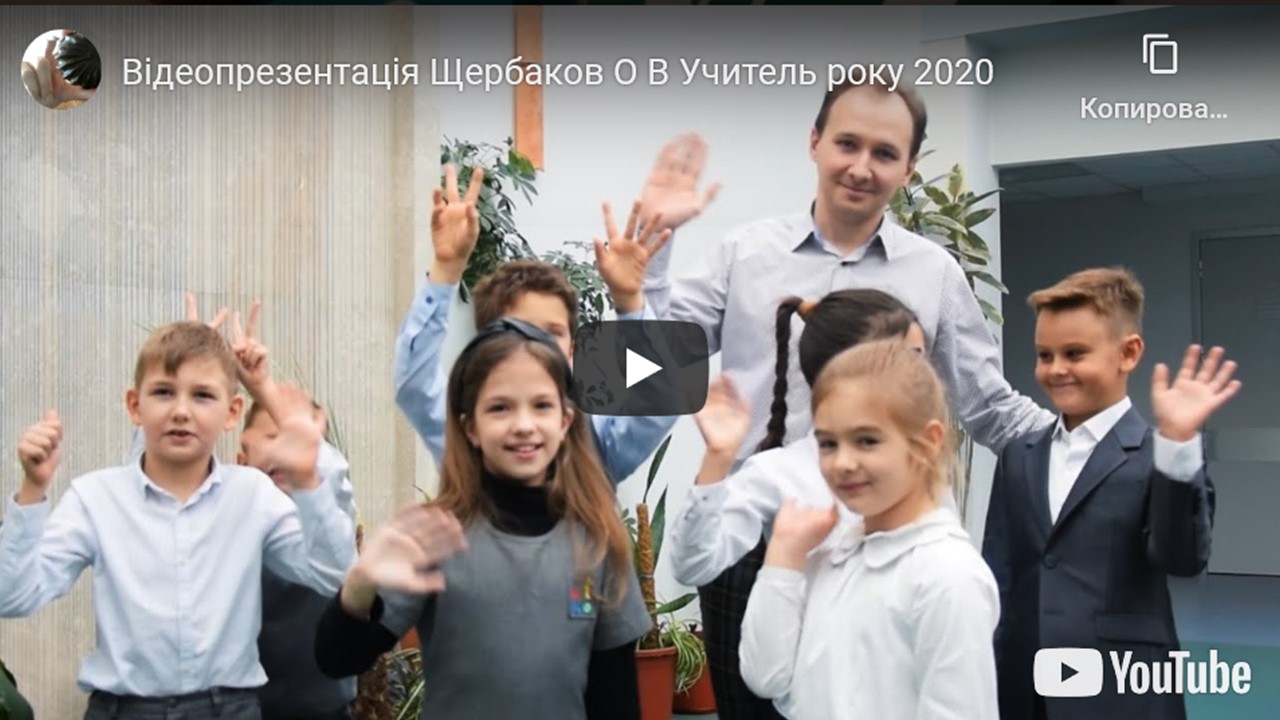
Art. Sport. Leadership
Extra-academic activities are an important component of our educational system and are implemented through the work of dynamic creative groups and teams, school network circles and partner schools. The list of extracurricular activities is focused on current requests of students. These are mobile flexible programs aimed at children's acquisition of life skills, acceptance and respect for individual characteristics and the individual development trajectory of each child. All classes are held in the educational buildings of the Liko school.
The school network of circles has artistic-aesthetic, decorative-utility, technological, intellectual directions:
"Chess" section, theater studio "Liko-action", art studio of "Painting", "Graphics" and "Petrykivsky painting", vocal ensemble, modern dance circle, "Lego - club", creative workshop for girls "Handicrafts" and "Liko-atelier" sewing studio.
Partner schools:
STEM - center https://www.facebook.com/liko.stem
ДЮСШ «SportLiko» https://www.facebook.com/SportLiko
Музична школа «Drum ART» https://school.drumart.com.ua/
Студія естрадного вокалу Л. Татарової https://kievvocal.com.ua/
Feedback with parents
All communications are deployed in the application - Teams Microsoft Office 365. Parents, students and teachers can contact each other directly through chats and arrange a meeting.
In addition to the communication platform, each student has their own electronic diary. This is a resource that allows you to post lesson content and homework every day, assign grades, and leave comments on completed work. In this way, parents can provide the necessary educational support to their children in a timely manner. The electronic application is also my convenient financial office for parents.
The school has social interaction projects with parents:
"School Angels" is about the exchange of experience of adults with students, where parents try on the role of teachers and conduct lessons.
"Batkivska kava" is a school of conscious parenting, in which families of students meet twice a month with a psychologist of the Liko school, and in an informal atmosphere they receive knowledge to improve relations with their children.

Safety at school
The school has a closed area with security and 24-hour video surveillance in every classroom and common areas of the school.
Entrance to the school territory is carried out using electronic passes.
On the -1st floor there is a shelter to ensure comfortable learning.
The school has its own generator.
Uninterrupted access to the Internet is provided by Starlink.
The school has two medical offices, all students of the school are provided with medical insurance.






